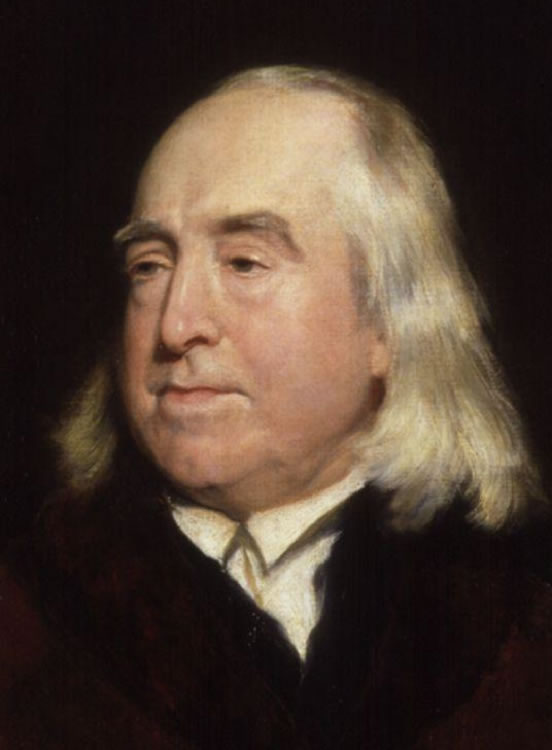 Jeremy Bentham, born on February 15, 1748, in London, England, was a prominent philosopher, jurist, and social reformer known as the founder of modern utilitarianism. His father, a wealthy attorney, ensured that Bentham received an excellent education, leading him to graduate from Queen's College, Oxford, at the age of 15. He then studied law at Lincoln's Inn, although he never practiced as a barrister.
Jeremy Bentham, born on February 15, 1748, in London, England, was a prominent philosopher, jurist, and social reformer known as the founder of modern utilitarianism. His father, a wealthy attorney, ensured that Bentham received an excellent education, leading him to graduate from Queen's College, Oxford, at the age of 15. He then studied law at Lincoln's Inn, although he never practiced as a barrister.
Bentham's philosophical work centered on the principle of utility, which he famously encapsulated in the phrase "the greatest happiness of the greatest number." He argued that the moral worth of actions should be judged by their consequences, specifically the extent to which they promote happiness or reduce suffering. This idea laid the groundwork for utilitarianism, a major school of thought in moral and political philosophy.
Bentham was also a prolific writer and reformer, addressing a wide range of issues including legal reform, prison conditions, animal rights, and education. He advocated for the decriminalization of homosexuality, the abolition of slavery, and the establishment of welfare programs. His influential works include A Fragment on Government (1776) and An Introduction to the Principles of Morals and Legislation (1789).
One of Bentham's most innovative ideas was the design of the Panopticon, a model prison intended to allow a single guard to observe all inmates without them knowing whether they were being watched. Although never fully realized, the Panopticon concept had a lasting impact on penal theory and institutional design.
Bentham's legacy extends beyond his writings; he left his body to science and requested that it be preserved and displayed. His "auto-icon" remains on exhibit at University College London, symbolizing his enduring commitment to education and social progress. Jeremy Bentham died on June 6, 1832, but his ideas continue to influence contemporary discussions on ethics, law, and public policy.
|

 Jeremy Bentham, born on February 15, 1748, in London, England, was a prominent philosopher, jurist, and social reformer known as the founder of modern utilitarianism. His father, a wealthy attorney, ensured that Bentham received an excellent education, leading him to graduate from Queen's College, Oxford, at the age of 15. He then studied law at Lincoln's Inn, although he never practiced as a barrister.
Jeremy Bentham, born on February 15, 1748, in London, England, was a prominent philosopher, jurist, and social reformer known as the founder of modern utilitarianism. His father, a wealthy attorney, ensured that Bentham received an excellent education, leading him to graduate from Queen's College, Oxford, at the age of 15. He then studied law at Lincoln's Inn, although he never practiced as a barrister.






